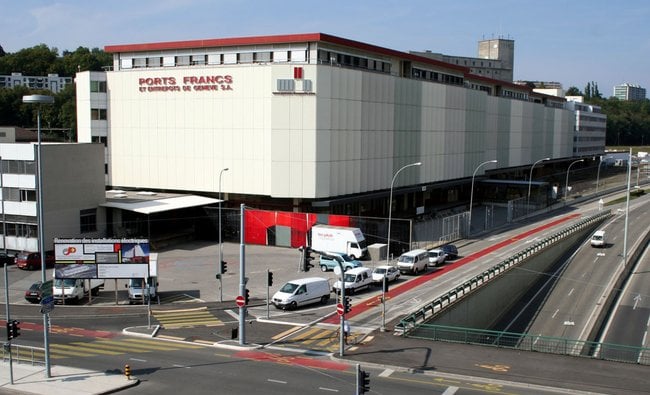
Are customers fleeing Swiss freeports in droves as a result of tighter regulations on storage or is it just a “few” wealthy, wary clients?
That is the question being posed by a Bloomberg report this morning that suggests some high-profile art collectors are removing property from Geneva-based freeport after a missing Amedeo Modigliani painting stolen by the Nazis, and acquired by the Nahmad family in 1996, is under investigation by the Geneva prosecutor’s office.
Earlier this month, artnet News received an email from art and asset recovery firm Mondex Corporation, noting that “following the revelations in the Panama Papers,” Mondex “believes…[they] reveal a five-decade multi-generational conspiracy by a French family to hide Amedeo Modigliani’s ‘Seated Man with Cane, 1918” from the painting’s rightful owner Oscar Stettiner, and his estate.
On its website, Geneva Free Ports & Warehouses Ltd. advertises its “unique setup,” which “allows one to store goods in transit, under customs’ control granting temporary postponement of VAT and customs duty payments and thereby improving cash flow.”
President David Hiler, former finance minister of Geneva, says that he will implement reforms and overhaul how the sites are run. The reforms he’s undertaking, include “a biometric system to identify and track visitors, combined with stepped-up customs inspections.” Clients must either accept the tighter regulations “or get out.”
Bloomberg also quotes Fritz Dietl, owner of a storage facility in Delaware, which artnet News wrote about this past October. Dietl told Bloomberg that while he sympathizes with the Swiss business because of undeserved “negative publicity,” he is nonetheless “benefiting from that.”
However, it’s unclear whether the Delaware storage port would offer any additional legal protection against exposure of assets stored there. While Delaware does not have the same hefty state sales tax on art and collectibles, that New York does, it is presumably not immune from the type of scrutiny and extent of investigation that resulted in the identification of the Modigliani in Switzerland.
Art Market Monitor’s Marion Maneker weighed in on the Bloomberg story this morning, calling it “a scandal mongering non-story on reforms at the Geneva Freeport which is NOT losing customers despite the headline.”
Dietl told artnet News this past October: “In Delaware, of course, you have all the same protections and tax advantages that you have for moving something to Switzerland.”
artnet News reached out to Dietl and to the Nahmad family for comment, but did not receive an immediate response.
A spokesman for Mondex told artnet News this morning:
“While we see the value of the free ports we also know that greater transparency in the art market is needed and in the best interests of all concerned. It is exactly that issue, the need for transparency into how opaque corporate structures are used to purchase, possess and store art, that is at the center of our work to recover Modigliani’s ‘Seated Man with a Cane’ and have it returned to its rightful owner.”
“For those parties who think that they can just transfer something from one freeport to another and escape the increasing scrutiny I think that’s foolish,” Mondex founder James Palmer told artnet News in a phone interview this morning.
Another source with numerous clients who use the Swiss freeports says none have backed out, noting:“Where will they go? The gallery? No. Home? No.”